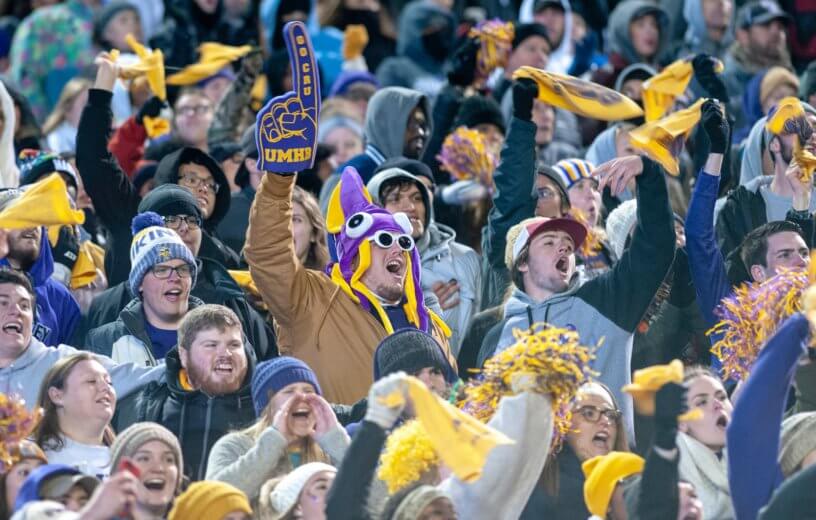BOSTON, Mass. — Many people may never look at concerts, sporting events, or any other large gathering in quite the same way post-pandemic. However, researchers from Massachusetts General Hospital have some encouraging news for those anxious about the prospect of returning to live events. Their study finds that recent NFL and NCAA football games held with limited attendance did not result in an increase in local COVID-19 cases.
Considering the potential of such occasions to turn into “super-spreader” events, these findings are a major boon in the fight against COVID-19.
“There was a lot of speculation in the media and on social platforms regarding whether in-person attendance at NFL and NCAA regular season football games resulted in local COVID-19 spread. We thought it was important to assess whether these games with attendance caused an increase in cases,” says first study author Asmae Toumi, BS, a researcher at the MGH Institute for Technological Assessment, in a media release.
The researchers themselves admitted what they discovered shocked them. Most of the team assumed these games would lead to a major uptick in coronavirus cases.
“Before conducting the study, our conjecture was that football games would cause an explosion in the number of cases; however, it turns out that this is not the case and the games did not lead to a major increase in the number of cases,” explains senior study author Turgay Ayer, PhD, MSc, an associate professor at Georgia Tech.
Empty stadiums unnecessary?
Study authors matched up every county that had hosted games with live fans in 2020 and 2021 with another county that had only hosted football events with no fans in attendance. Importantly, each pair of counties shared similar overall populations, COVID-19 trends, and pandemic safety restrictions. The team included a total of 796 NFL and NCAA in this analysis, with 528 of those contests having live fans in the seats. Researchers then used an algorithm to match up counties, producing 361 pairs in all.
Ultimately, that process led the research team to conclude that allowing live fans back into events did not have a significant effect on COVID cases. More specifically, this effect did not surpass five new daily cases of the virus per 100,000 residents on average. No evidence appeared indicating a consistent increase in local COVID-19 cases following limited attendance at both NFL or NCAA games. All in all, study authors say these events did not increase local COVID-19 cases nor did they increase the risk of contracting COVID.
What’s keeping fans from catching COVID?
As far as why this was the case, it’s very likely that the limited number of attendees, strict use of face masks, and open air seating all contributed mightily to these fantastic findings.
“Our study’s conclusions can inform fan attendance policies for the 2021 football season. In-person attendance can be safe as long as social distancing is maintained. Though we have COVID-19 vaccines in 2021, we need to remind ourselves that not everyone is vaccinated, and vaccines are not 100% effective. With variants of concern like delta, large gatherings can still result in COVID-19 transmission if people do not wear masks,” concludes study co-author Jagpreet Chhatwal, PhD, associate director at the MGH Institute for Technology Assessment and an assistant professor at Harvard Medical School.
The findings appear in the journal JAMA Network Open.
